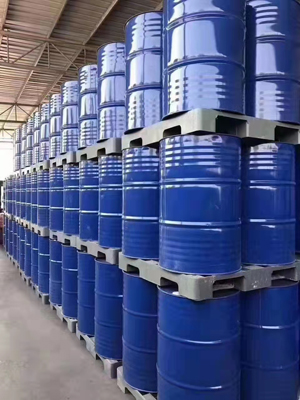N,N-Dimethylacetamide

Physicochemical properties |
Color and smell status: colorless, transparent and light ammonia liquid |
||
Toxicity: low toxicity |
Flammability: flammable |
||
Density: 0.9366 |
Volatility: volatile |
||
Boiling point: 166.1℃ |
Decomposability: easy to decompose |
||
Stability: stable |
Melting point: -20 ℃ |
||
Alkalinity or acidity: weakly alkaline |
Spontaneous ignition point: 420℃ |
||
Viscosity: 0.92 |
Flash point: 66°C |
||
Solubility: It can be mixed with organic solvents such as water, alcohol, ether, ester, benzene, chloroform and aromatic compounds at will? |
|||
Various code |
CAS: 127-19-5 | HS:2924199090 |
EINECS: 204-826-4 |
Uses |
DMAC is mainly used as synthetic fibers, solvents, and is widely used in polymer films; coatings and medicine.?At present, it is widely used to synthesize antibiotics and pesticides in medicine and pesticides.?Can be used as reaction catalyst, electrolytic solvent, paint remover |
||
Hazard category |
normal goods |
||
Fire-fighting measures |
Use water spray, dry powder, alcohol-resistant foam, carbon dioxide, and sand to extinguish the fire.?Keep the containers in the fire scene cool with water. |
||
Emergency treatment |
Skin contact: Take off immediately and isolate the contaminated clothing, and rinse the skin thoroughly with water Eye contact: rinse immediately Inhalation: Move the patient to a place with fresh air and seek medical attention.?If the patient stops breathing, give artificial respiration Ingestion: Seek medical attention, drink plenty of water, induce vomiting (except for coma). |
||
Packaging, storage, transportation |
Metal pail, 190 kg/barrel or 10000 kg special tank. It should be sealed and stored in a cool and dry place, avoid water absorption and sunlight, and cannot be close to the fire source. It should be handled with care when handling, and transported according to general cargo requirements. |
||
Next product: Petroleum ether

